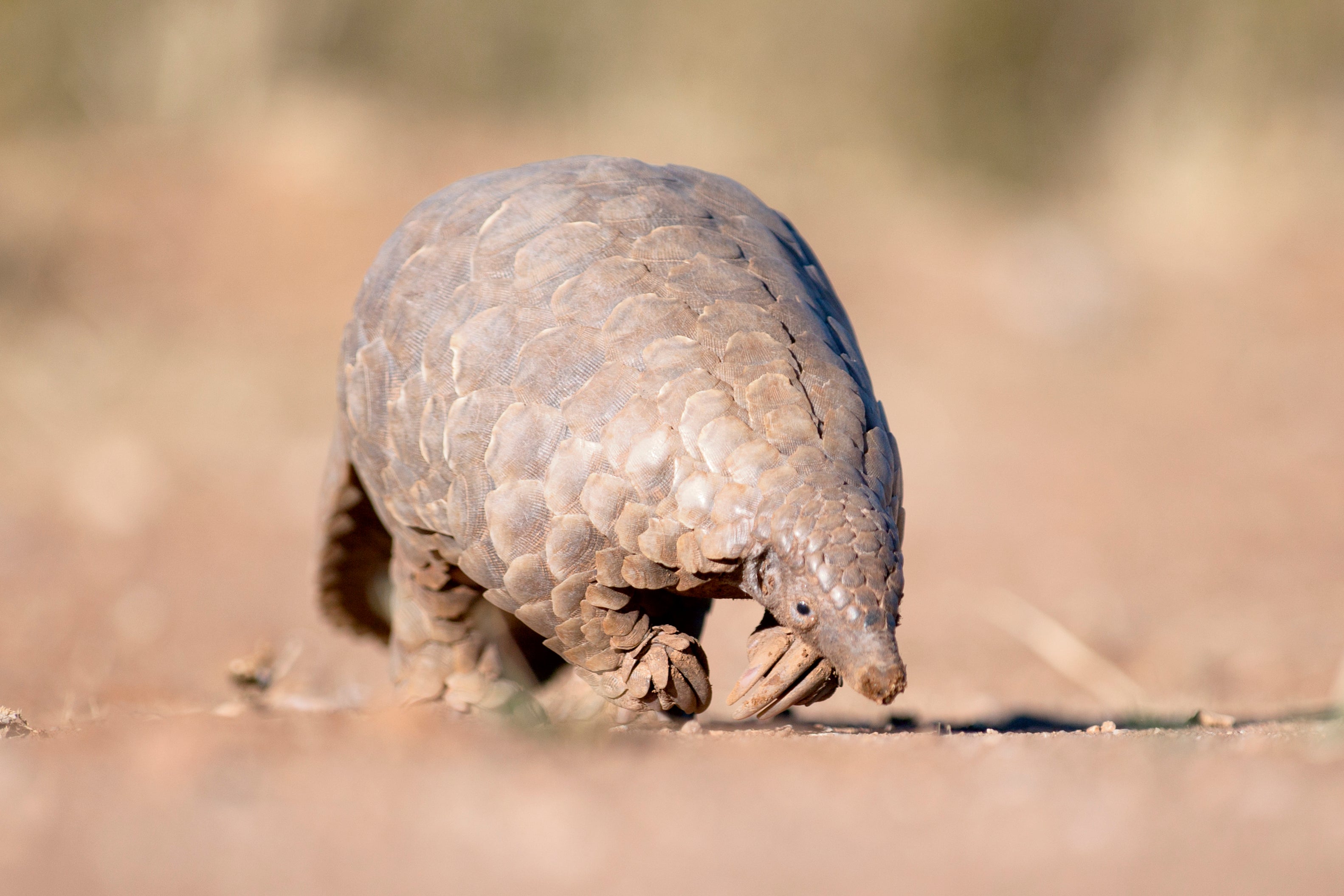Revealed: How global financial giants invest in firm that makes medicines from endangered pangolin parts
We are working with conservation charity Space for Giants to protect wildlife at risk from poachers due to the conservation funding crisis caused by Covid-19. Help is desperately needed to support wildlife rangers, local communities and law enforcement personnel to prevent wildlife crime

Your support helps us to tell the story
From reproductive rights to climate change to Big Tech, The Independent is on the ground when the story is developing. Whether it's investigating the financials of Elon Musk's pro-Trump PAC or producing our latest documentary, 'The A Word', which shines a light on the American women fighting for reproductive rights, we know how important it is to parse out the facts from the messaging.
At such a critical moment in US history, we need reporters on the ground. Your donation allows us to keep sending journalists to speak to both sides of the story.
The Independent is trusted by Americans across the entire political spectrum. And unlike many other quality news outlets, we choose not to lock Americans out of our reporting and analysis with paywalls. We believe quality journalism should be available to everyone, paid for by those who can afford it.
Your support makes all the difference.Major Western financial institutions have been urged to terminate their investments into a Chinese pharmaceutical company licensed to use pangolin parts.
China Beijing Tong Ren Tang Co Ltd, a Chinese pharmaceutical giant with subsidiary companies across the world including in the United Kingdom and United States, was one of the 221 companies to retain a license to use pangolin scales according to an Environmental Investigation Agency (EIA) investigation.
The EIA is a UK-based charity that investigates threats to the natural world including deforestation, plastic pollution and wildlife crime. It was one of the 20 leading wildlife organisations to agree a joint declaration to the G20 last month, brokered by The Independent.
The drugs company, which is listed on the Shanghai Stock Exchange, was alleged in the EIA’s Smoke and Mirrors report from October to be selling Traditional Chinese Medicine (TCM) products with pangolin scales marked in the ingredients.
One such product, labelled ‘Easy Throat Tablet’, was found to have ‘wild pangolin’ in its list of ingredients according to the EIA. China Beijing Tong Ren Tang Co Ltd could not be reached for comment by The Independent.
Financial services firms that hold investments in the Chinese pharmaceutical firm include Vanguard, Morgan Stanley, BlackRock, Deutsche Bank, St James’ Place and Standard Life Aberdeen according to financial information compiler Bloomberg.
A spokesperson for BlackRock, which owns almost half a per cent of the company as of December 1 2020, said: “We have a very minor position in Tong Ren Tang through index products tracking the MSCI Emerging Markets index. We have engaged with the company through our investment stewardship team on ESG [environmental and social governance] topics, including supply chain.”
The Independent reached out to all other firms above for comment. Sources close to the companies indicated that their holdings were very small or part of passive investments through index trackers, which automatically buy a representative sample of shares from listed companies on an exchange.
Chris Hamley from the EIA said: “The involvement of large European and American investors in TCM pharmaceutical companies known to sell pangolin scale medicines demonstrates the critical need for all investors to consider illegal wildlife trade risks in investment decision making.”
Pangolins were reportedly on sale at the Huanan Seafood Market in Wuhan, believed to be the source of the coronavirus pandemic. Pangolins are seen as a luxury product in many cultures for their meat and scales. In Traditional Chinese Medicine (TCM), the scales are believed to induce lactation in women.
All eight species of pangolin, the four native to Africa and the four native to Asia, are listed on Appendix I of Convention for the International Trade in Endangered Species (CITES). All four Asian pangolin species are listed as critically endangered after decades of poaching.
Hamley continued: “Demand for illicit wildlife products such as pangolin scales and leopard bone for use in TCM is destroying biodiversity and is a major risk factor in the emergence of zoonotic diseases. Investors need to act responsibly to ensure they are not supporting activities that are pushing wildlife towards extinction and putting the world at risk of another pandemic.”
The ‘About Us’ section of China Beijing Tong Ren Tang’s website reads: “Founded in 1669, Beijing Tong Ren Tang was the only one serving the royal families with Chinese medicine for 188 years over the reign of eight emperors since 1723. Beijing Tong Ren Tang was renowned in the Chinese medicine industry nationally.
“Inheriting the Tong Ren Tang’s corporate motto of “No compromise on cost and labour despite the complexity of processing herbal medicines. No compromise on quality and standard despite the scarcity of medicine ingredients over 350 years, we are self-disciplined to offer products and services with quality.”
“We are cautious in our manufacturing process and look for excellence, our products are famous and hereditary with its unique formulas, superior raw materials, superb technical skills and distinguished efficacy.”


Join our commenting forum
Join thought-provoking conversations, follow other Independent readers and see their replies
Comments